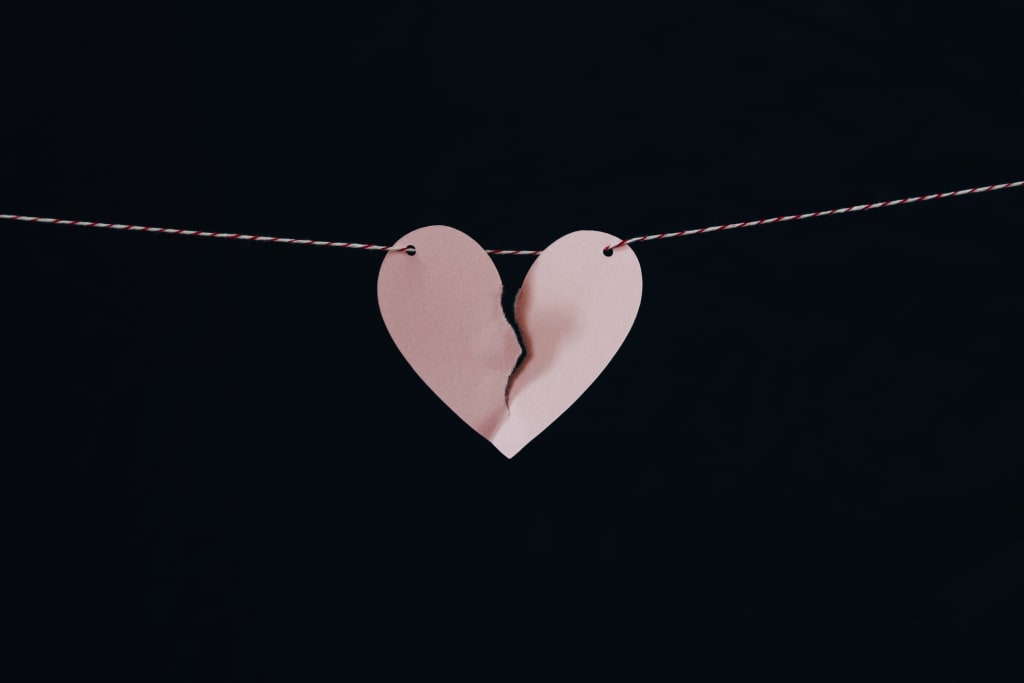Have You Read This Yet? 'Milk and Honey' by Rupi Kaur (Pt. 3)
Is it ever truly love if it takes more than it ever could have given you?

"i alwaysget myself into this messi always let himtell me i am beautifuland half believe it . . .that will be theend of me" (Kaur, 2015, p. 81)
Nothing lasts forever, but maybe we wish they could end a little gentler, a little sweeter; like they started.
We do not always get what we wish for.
Rumbling
Kaur vacillates between a wide range of emotions, each powerful and overwhelming as she fights herself, her lover, and the inevitable break up. The entire section is in fractured sections of their fights, their toxic circling of one another, and then the breakup.
Do you know that feeling, that alien and vulnerable feeling, of your loved ones knowing something you haven't seen yet? It's hard to describe that sort of feeling, isn't it, that bitterness and defensiveness when the people who love you just cannot seem to lose their suspicions about the one you gave your heart to.
"when my mother says i deserve betteri snap to your defense out of habithe still loves me i shout . . .she looks at me . . . it means nothing to me if he loves youif he can't do a single wretched thing about it" (Kaur, 2015, pg. 82)
Harder still to allow yourself those private thoughts, by yourself and after dark when the night can more easily cloak your doubts and fears. There's a point in the relationship where you can see the ship sinking, feel the foundation crumbling underneath you. There are the times when you simply sit, numb, watching everything fall apart and almost too apathetic to care about it. Kaur notes, perhaps with hard-earned wisdom or perhaps with hurt cynicism that ". . . if he wants to be with you he will it's that simple" (Kaur, 2015, pg. 85). But then there are those times when you desperately grasp at those pieces and fit them together to keep holding on to that warmth and comfort you used to have. Kaur speaks aside to the women who are or were in crumbling relationships at one point and notes how "you have spent enough nights with his manhood curled inside your legs to forget what loneliness feels like" (2015, pg. 91).
Kaur has shown herself not to be a fool when it comes to self-honesty, however, and she makes sure the reader also is aware of those times when she was reminded of the inevitable fate of her relationship.
"You were so distant i forgot you were there at all" (2015, Kaur, pg. 83). Sometimes the reader can infer where (or when) in the relationship a particular sentence or passage Kaur directs the reference. For sure this entire section focuses on the fall before the fated breaking, but when a sentence like this pops up it makes me wonder. How quickly did her lover start to drift from her? Or, did she notice immediately or was it something that slowly dawned on her like a sinking in her stomach, or a snake winding around her throat.
I don't think anyone needs to guess where this one goes through. "the thing worth holding on to would not have let go" (Kaur, 2015, pg. 102).
Shattering
"love is not cruelwe are cruellove is not a gamewe have made a gameout of love" (Kaur, 2015, pg. 127)
As the reader will remember from either my previous reviews or your own readings, Kaur punctuates her graceful and poignant observations with jagged edges of emotion. Pain felt so keenly, that is written so powerfully it is hard to believe such short words can run so deeply within you. There are many times in this section where Kaur bleeds upon the pages, shows her grief and pain, her bitterness over all the hurt she has received and given in tumultuous measure.
Her grief is shown in its rawest form, I think, in the stanza: "the night after you left i woke up so broken the only place to put the pieces were the bags under my eyes" (Kaur, 2015, pg. 130). In 'The Breaking,' she will most often talk about her feelings and the actions between her and her lover, but a few times she will make note of how she copes after their break up. For all that they hurt each other, the passion and feeling of being with someone else was such an integral part of her life that to be alone feels like being torn apart.
Her bitterness over him (though I am unclear whether or not this is post-breakup or not) is clearly defined in a metaphor involving coffee. Kaur says, "the next time you have your coffee black you'll taste the bitter state he left you in," and the clear imagery and sensation you can feel from that is sharp. The aroma of black coffee, strong enough to overpower almost anything else in your mind before you commit to taking a drink. She notes with what might be a touch of ruefulness that you will drink because, "you'd rather have the darkest parts of him than have nothing" (2015, pg. 89). Remember that metaphor about foundations I made earlier? It applies here, as well; you'd rather even ragged pieces of the grounds you once knew, than to lose it altogether and fall apart.
"He isn't coming back whispered my head/ he has to sobbed my heart" (Kaur, 2015, pg. 133). This tragic line is such a fantastic example of that near shock, that final crack in your life when you the thing you fought for and against so ferociously dies. No matter how you rationalize it, no matter how good it actually is or you, the heart is such a tender thing and losing something it was bonded too so abruptly is a horrific sort of feeling.
I think . . . the real heartbreak comes not from losing that love, but from watching that love curdle and sour into resentment and poison. What once gave you the sweetest joy leaves you wrecked from bitter seething. Kaur uses some impressive imagery again, in only a few short words, in the short admission: "rivers fall from my mouth tears my eyes can't carry" (2015, pg. 118). This brings up an image of Kaur, tired of crying so much for someone who seems to have no compunction in hurting her, instead, transforming the sadness into anger and hurling vitriol at the object of her grief.
Erupting
Speaking of anger, there's quite a bit of compelling language to represent that crippling emotion. Of course as the dark side of your relationship moves over like the phase of the moon, many choose not to sit idly by but wage a war against the opponent who was once who you fought for. Whether the anger springs from a defensive technique or an offensive maneuver, nevertheless it's a heady emotion that can often get the best of anyone.
But for all of anger's faults, it's not a strictly "bad" emotion. As stated previously it can be used as a defense against one who would want to see you inferior to them, and maybe that's the case in Kaur's failing relationship. Perhaps it's a firm stance against someone who would take all of you, wring you out like a cloth and toss you aside crumpled and empty.
"Even when you undress her you are searching for me . . . it is still my name that rolls off your tongue accidentally" (Kaur, 2015, pg. 105). Of course Kaur wouldn't know whose name he called during a passionate moment with another women (unless there's another story there which would be a WILD sequel), but the anger and righteous sense of knowing how much he must still think about her is justified in the hearts of those who have been hurt in relationships. It's a smug anger here, an anger that implies that while he may still pine for her she would never give in.
There is an understandable anger at how they can't seem to let go even as the relationship is falling apart in those days before the dreaded break. Kaur regards it with a more sullen tinge to her anger this time. "it always comes back to you/ boils/ circles/ itches/ its ways back to you" (Kaur, 2015, pg. 113). Kaur continues to rage not only against their entwined selves but the fact that she can't seem to let him go despite understanding how bad he is for her.
Moving forward on this non-linear chronicle towards the post-breakup conflict Kaur shows a duality in her indignation with the line, "i don't want to be friends i want all of you" (2015, pg. 134). It is lines like this and a few others in the section that leaves me continually wondering who broke up first. A pretty important question because one party ends up more hurt than the other, and the implied baggage — both mental and emotional — is a burden that is hard to fight.
There's a particular line that I truly enjoy that doesn't really have much to do with anger in a direct sense, but the dismissive nature speaks to someone who's been angry and now just wants to be coolly petty. Which I find delicious. "i am losing parts of you like i lose eyelashes unknowingly and everywhere" (Kaur, 2015, pg. 135). That's a power move for anyone that isn't aware, and a damaging one at that. To lose pieces of him like eyelashes, something that happens naturally and without much care, because who has ever been sad at the loss of an eyelash? Most times that tiny piece of hair will fall right into our eye, irritating us to distraction, and to both remove it from our eye and our body is a blessing truly. That process doesn't sound all that different from losing a toxic person in your life.
About the Creator
Delise Fantome
I write about Halloween, music, movies, and more! Boba tea and cheesecake are my fuel. Let's talk about our favorite haunts and movies on Twitter @ThrillandFear






Comments
There are no comments for this story
Be the first to respond and start the conversation.